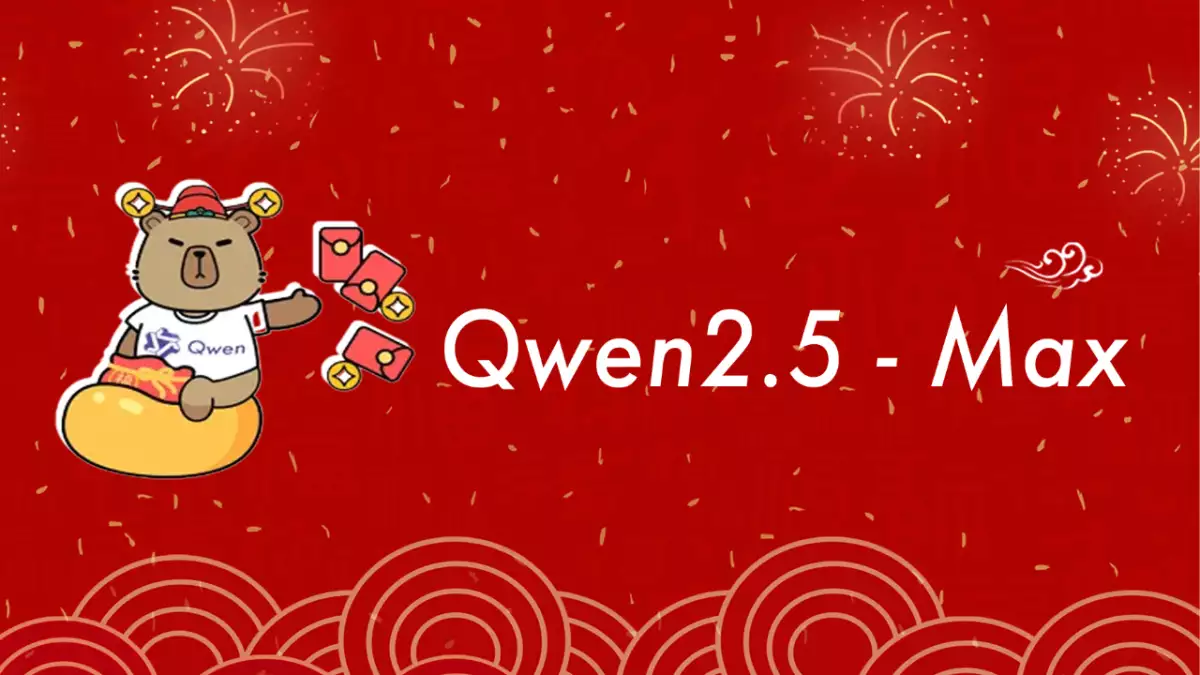
Alibaba launches AI model, says it outperforms DeepSeek-V3
On the first day of the Chinese Lunar New Year, the company claims its AI outperforms most models from OpenAI, Meta and DeepSeek.
Chinese tech firm Alibaba on Wednesday released a new version of its Qwen 2.5 artificial intelligence model that it said outperforms the acclaimed DeepSeek-V3 .
The unusual timing of the Qwen 2.5-Max unveiling — on the first day of the Lunar New Year, when most Chinese are off work and with their families — points to the pressure that Chinese artificial intelligence company DeepSeek’s meteoric rise over the past three weeks has put not only on its foreign rivals but also its domestic competition.
"Qwen 2.5-Max virtually outperforms GPT-4o, DeepSeek-V3 and Llama-3.1-405B," Alibaba's cloud unit said in an announcement posted on its official WeChat account, referring to more advanced open-source AI models from OpenAI and Meta.
The January 10 launch of DeepSeek’s AI assistant, based on the DeepSeek-V3 model, as well as the January 20 launch of its R1 model, have sent shockwaves through Silicon Valley and sent tech stocks tumbling. The Chinese startup’s purportedly low development and deployment costs have led investors to question the massive spending plans of major US AI companies.
But DeepSeek's success has also sparked a scramble among its domestic competitors to improve their own AI models.
Two days after the release of DeepSeek-R1, TikTok owner ByteDance released an update to its flagship AI model, which it claimed outperformed Microsoft-backed OpenAI’s o1 on AIME, a benchmark that measures the ability of AI models to understand and respond to complex instructions.
DeepSeek claims its R1 model rivals OpenAI’s o1 in several performance tests.
Deepseek vs. domestic competitors
The predecessor to DeepSeek's V3 model, DeepSeek-V2, sparked a price war for AI models in China after its launch last May.
The fact that DeepSeek-V2 was open source and had an unprecedented price tag of just 1 yuan ($0.14) for 1 million tokens — or units of data processed by the AI model — prompted Alibaba's cloud unit to announce price cuts of up to 97% on a range of models.
Other Chinese tech companies followed suit, including Baidu 9888.HK, which launched the first Chinese equivalent of ChatGPT in March 2023, and the country's most valuable internet company, Tencent 0700.HK.
Liang Wenfeng, the enigmatic founder of DeepSeek, said in a rare interview with Chinese outlet Waves in July that the startup “doesn’t care” about the price war and that its main goal is to achieve AGI (artificial general intelligence).
OpenAI defines AGI as autonomous systems that outperform humans at most tasks of economic value.
While big Chinese tech companies like Alibaba have hundreds of thousands of employees, DeepSeek operates as a research lab, staffed mostly by young graduates and PhD students from top Chinese universities.
Liang said in his July interview that he believed China’s largest tech companies might not be well suited for the future of the AI industry, contrasting their high costs and hierarchical structures with DeepSeek’s agile operation and flexible management style.
"Great foundational models require continuous innovation, and the capabilities of the tech giants have their limits," he said.
Leave a comment:


